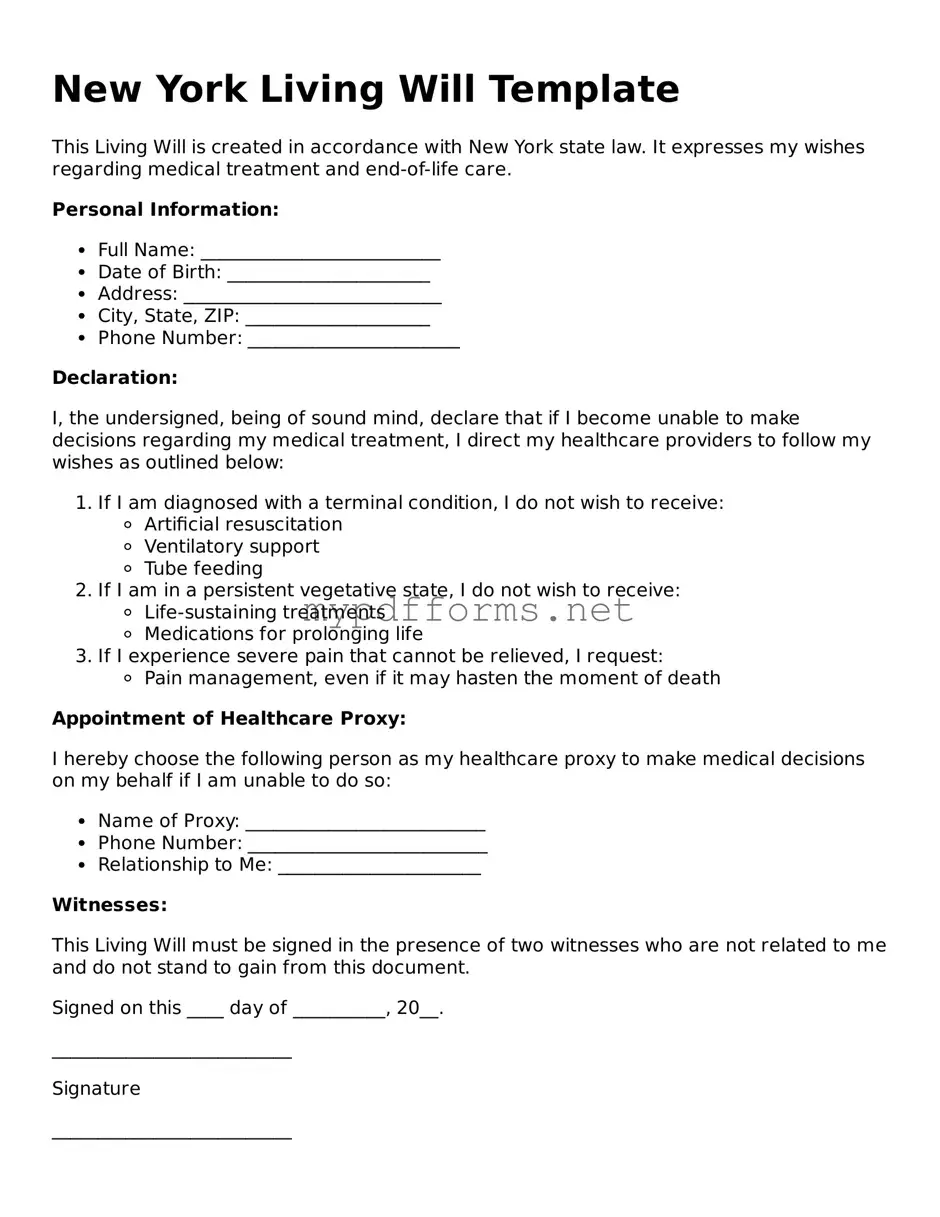Attorney-Verified Living Will Document for New York
A New York Living Will form is a legal document that allows individuals to outline their preferences for medical treatment in the event they become unable to communicate their wishes. This form ensures that healthcare providers and loved ones understand and respect the individual's choices regarding life-sustaining measures. To take control of your healthcare decisions, consider filling out the form by clicking the button below.
Modify Document Here

Attorney-Verified Living Will Document for New York
Modify Document Here

Modify Document Here
or
⇓ PDF
Need to check this off quickly?
Edit and complete Living Will online in just a few steps.